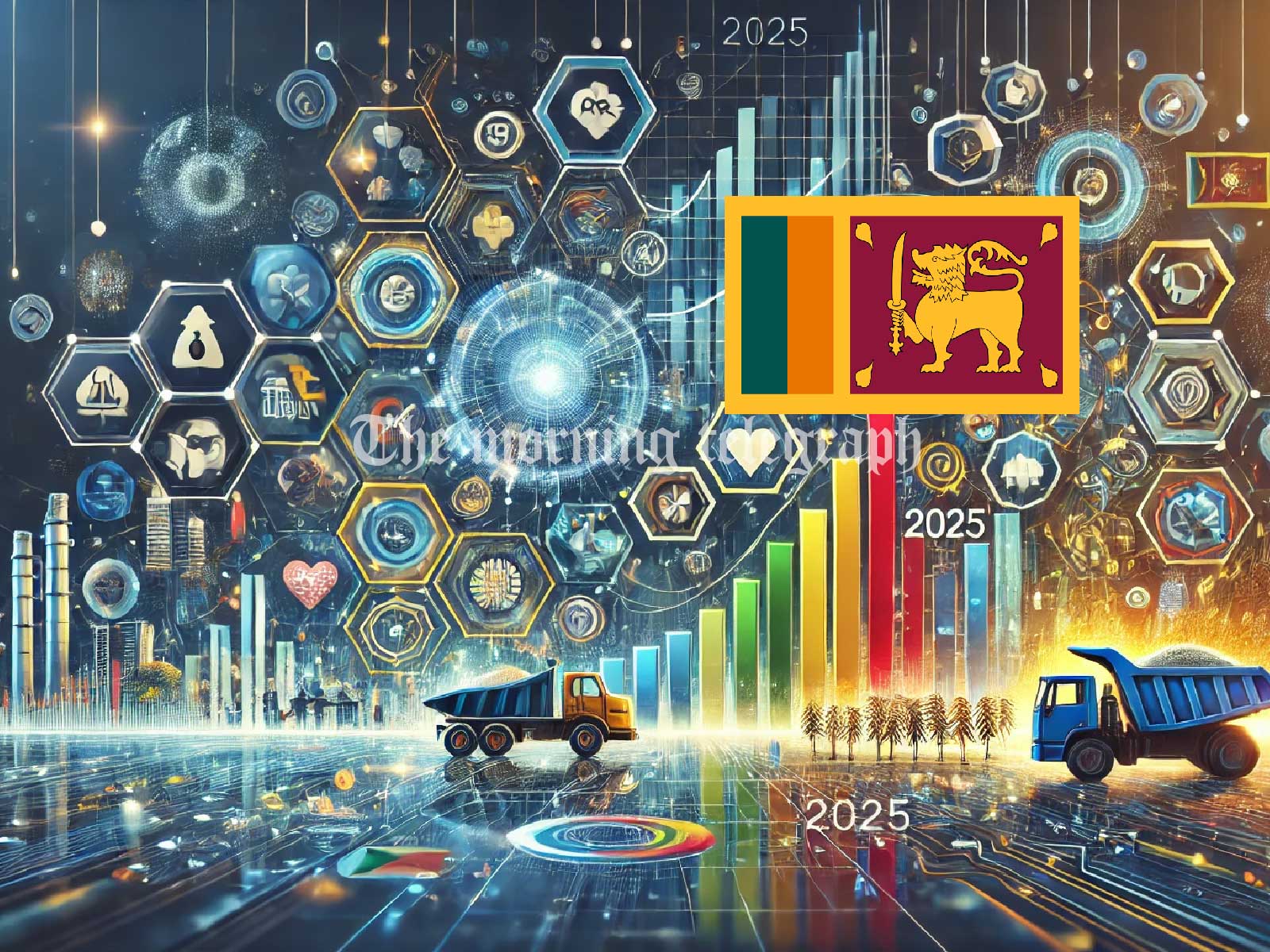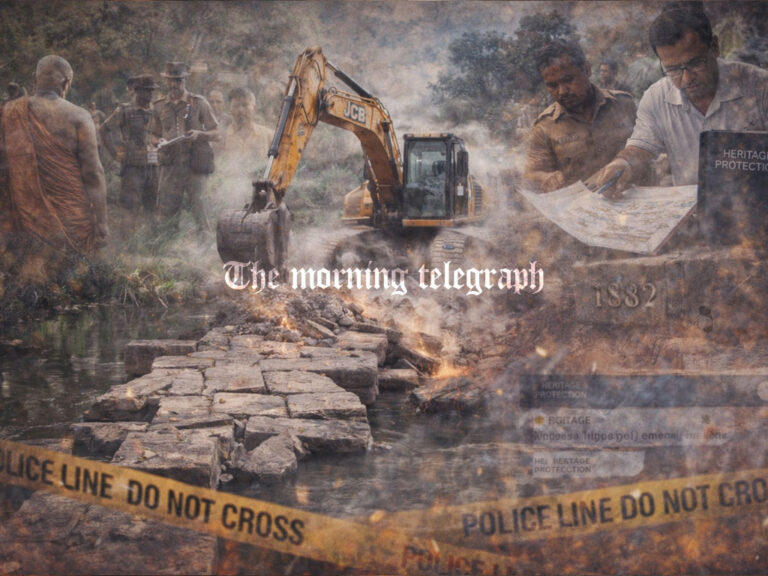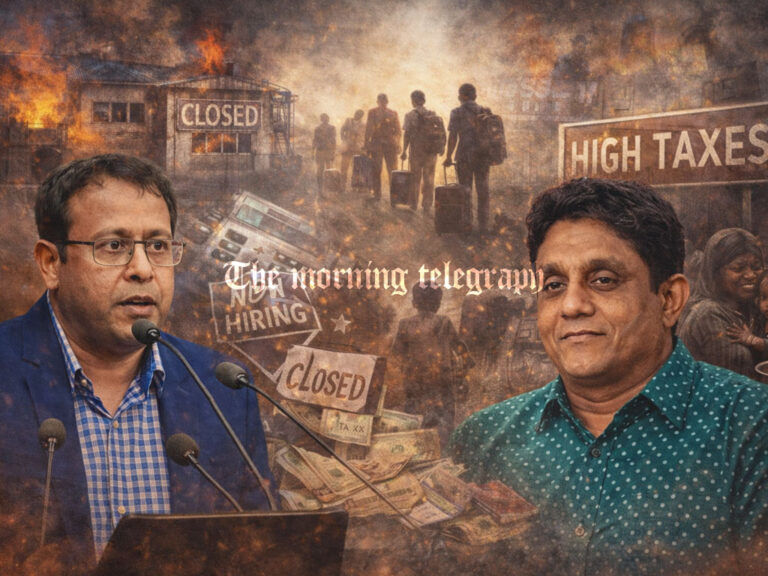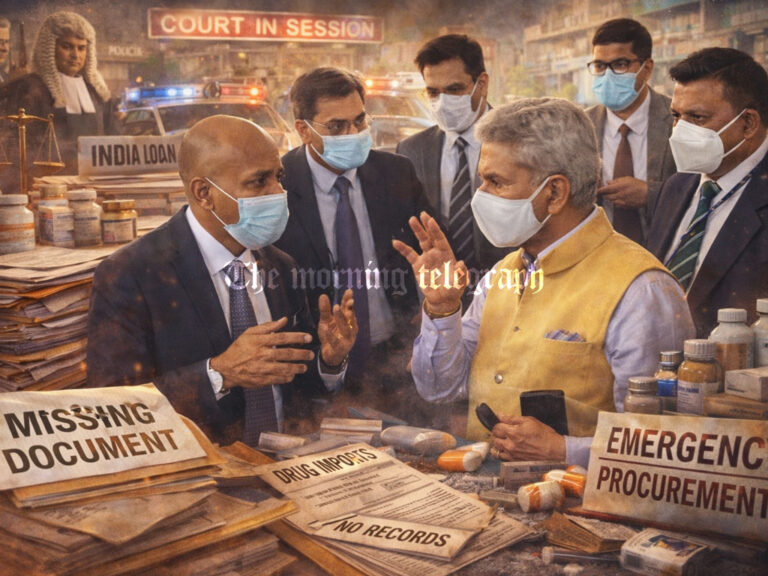
President Anura Kumara Dissanayake presented the 2025 Budget in Parliament, laying out a strategic plan that prioritizes economic recovery, fiscal discipline, social welfare, and infrastructure development. The budget focuses on fostering investments, boosting exports, improving digital transformation, and ensuring the equitable distribution of resources. This approach aims to stabilize Sri Lanka’s financial standing while also providing relief and benefits to various sectors, including healthcare, education, tourism, and agriculture.
Economic Reforms & Utilization of Government Land
As part of the government’s initiative to attract investors and encourage economic growth, President Dissanayake announced amendments to the Economic Amendment Act to make it more aligned with the needs of emerging businesses. He also proposed leasing out government-owned lands that remain underutilized, ensuring they are used for productive economic activities. Several parcels of land that have remained barren for years have already been identified and will be repurposed to support agricultural, commercial, and industrial initiatives. This policy aims to maximize land productivity while also generating new revenue streams for the government.
Boosting Sri Lanka’s Tourism Sector
The tourism industry has been identified as a key driver of economic growth, and President Dissanayake announced plans to attract over 2.5 million tourists in 2025. To support this goal, the government has allocated Rs. 500 million to enhance tourism infrastructure and promotional campaigns, ensuring Sri Lanka remains a top travel destination in the region. A digital ticketing system will be introduced to streamline the tourist experience, making it easier for visitors to access key attractions. Additionally, the government plans to introduce new destinations for international travelers and develop a Brand City concept to boost tourism appeal. These efforts are expected to increase foreign exchange earnings and create employment opportunities within the sector.
Healthcare Sector Receives a Significant Budgetary Boost
Recognizing the importance of an efficient and accessible healthcare system, the government has allocated a historic Rs. 604 billion for the health sector. This represents a significant increase aimed at improving hospital infrastructure, medical supplies, and digital healthcare solutions. A major portion, Rs. 185 billion, has been set aside for ensuring a steady supply of medicines, preventing shortages that have plagued the system in the past.
To modernize the healthcare industry, the National Drug Regulatory Authority and the State Drug Corporation will undergo a digital transformation, enhancing transparency and efficiency. Further, Rs. 200 million has been allocated to establish an international-standard treatment center at Lady Ridgeway Children’s Hospital, specializing in neurological disorders in children. These measures underscore the government’s commitment to providing quality healthcare services to all citizens.
Cutbacks on Political Expenditure and Public Spending Controls
In a bold move towards fiscal discipline, President Dissanayake announced significant cutbacks on allowances and luxuries enjoyed by political leaders. The number of cabinet ministers has been capped at 21, setting an example for responsible expenditure management. Luxury government vehicles, which contribute heavily to maintenance costs, will be auctioned in March, and MPs will not receive vehicle permits in 2025.
Additionally, the insurance coverage for MPs has been reduced from Rs. 1 million to Rs. 2.5 million, ensuring that public representatives do not receive excessive benefits. A special committee has been appointed to monitor the allocation of government resources for the President, Prime Minister, and Parliamentarians, ensuring they are effectively utilized for public welfare. These measures aim to curb unnecessary government spending and redirect resources towards essential public services.
Support for Farmers and Agricultural Development
To strengthen Sri Lanka’s agricultural sector, the government has proposed a series of financial and policy-based interventions. Recognizing the challenges faced by paddy farmers, Rs. 5,000 million has been allocated to purchase paddy stocks from the 2024-2025 Maha season, ensuring fair prices for farmers.
Additionally, Rs. 35,000 million has been earmarked for fertilizer subsidies, helping farmers reduce production costs while increasing crop yields. A centralized data system for agriculture will also be established to provide real-time information on production, distribution, and storage. Moreover, the Marketing Board Act will be amended to allow better collection and storage of paddy and rice, helping maintain adequate food reserves.
Furthermore, Rs. 500 million will be allocated to support small and medium-scale agricultural businesses, encouraging entrepreneurs to innovate within the sector. This move aligns with the government’s goal to ensure food security and economic sustaianability for rural communities.
Education and Scholarship Enhancements
A strong emphasis has been placed on improving education and financial assistance for students. Rs. 135 billion has been allocated for higher education development, ensuring that universities receive the necessary resources for expansion and modernization.
To provide financial relief to students, the Mahapola scholarship has been increased from Rs. 5,000 to Rs. 7,500, while the scholarship allowance has risen from Rs. 4,000 to Rs. 6,500. Additionally, over Rs. 4,600 million has been allocated to fund these scholarship increases.
The government has also committed Rs. 1,000 million to improving school infrastructure, particularly in underdeveloped regions. Efforts have also been made to enhance preschool education, with the nutritious meal program receiving an increase in funding, ensuring that children receive a healthy breakfast in their early years.
Transportation Upgrades for Public Convenience
To improve urban mobility, the government has allocated Rs. 3,000 million to purchase 100 luxury low-floor buses, which will operate across four key routes in Colombo. This pilot project aims to introduce more comfortable and efficient public transport options, reducing traffic congestion and reliance on private vehicles.
Special Economic Initiatives for Migrant Workers
Sri Lanka’s migrant workers contribute significantly to the economy, and the 2025 budget includes measures to reward and incentivize them. A key initiative is the increase in duty-free allowances for Sri Lankans working abroad, making it easier for them to bring in goods when returning home. The government is also working on a transparent policy framework to ensure that these benefits are fairly distributed.
Pension Increases & Senior Citizen Benefits
The government has committed to raising pensions in three phases, benefiting retirees before 2020. A special fixed deposit scheme for senior citizens has also been introduced, offering 3% interest above the market rate for deposits up to Rs. 1 million, ensuring financial stability for elderly citizens.
The 2025 Budget represents a bold and strategic approach to economic management, balancing fiscal responsibility with social welfare investments. With unprecedented allocations for healthcare, education, agriculture, and tourism, the budget seeks to stimulate economic growth while ensuring financial relief for vulnerable populations. The emphasis on political expenditure cuts, digital transformation, and public sector salary increases reflects a progressive effort towards sustainable economic recovery.
If successfully implemented, these measures could mark a turning point for Sri Lanka, paving the way for financial stability, business growth, and enhanced social security.




